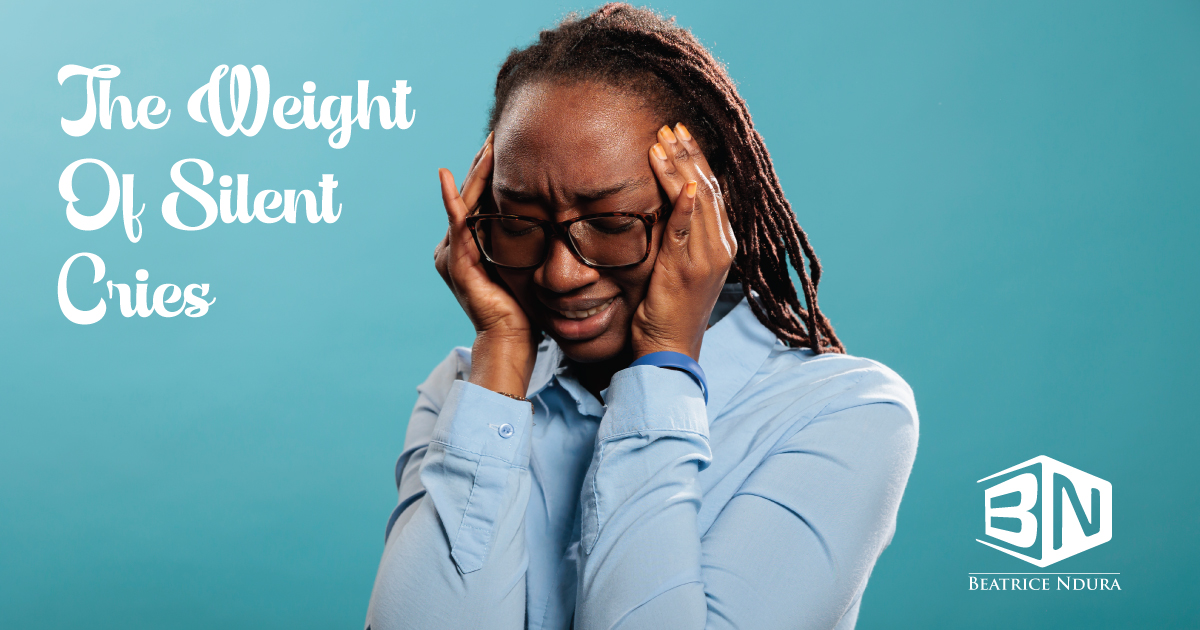In today’s fast-paced world, it can be easy to overlook the silent battles that many individuals face each day. A story shared with me recently encapsulates this painful reality—a husband revealed his wife’s struggles, a seemingly vibrant woman climbing the corporate ladder while grappling with the scars of childhood sexual abuse. Behind the facade of success lies a profound emotional turmoil that remains largely unseen. She wakes up at night, consumed by silent cries, unable to summon the strength to seek the help she desperately needs. This tragic narrative sheds light on the broader phenomenon of silent cries—those emotional wounds that often go unnoticed in our bustling lives.
The Weight of Silent Cries
The term “silent cries” resonates deeply within our communities. It evokes the unspoken struggles that countless individuals endure daily, hidden beneath layers of professional success, social interactions, and familial obligations. Job, in the biblical Book of Job, articulates this experience profoundly: “The groans of dying rise from the city, and the sons of the wounded cry out for help” (Job 24:12). These “groans” are the silent cries of those grappling with emotional pain that no doctor can diagnose.
Many individuals carry invisible wounds—trauma from abandonment, abuse, betrayal, or harsh criticism that they may not openly discuss. Oftentimes, the individuals inflicting these emotional wounds are unaware of their actions’ impact. Consequently, the victims may ruminate over these experiences, entrenching themselves in ongoing pain.
Coping Mechanisms and Denial
People handle emotional pain in various ways. Some turn to substances like drugs or alcohol, while others may engage in compulsive behaviors, destructive relationships, or unhealthy eating patterns. These coping mechanisms often serve as temporary distractions but fail to address the root of the pain.
Ignoring emotional suffering can lead to deeper psychological issues. Pain seeks acknowledgment—denying it can be a recipe for disaster. When we recognize our pain, we open ourselves to the possibility of healing. The first step in addressing this emotional distress is allowing ourselves to acknowledge it—no matter how daunting that may seem.
Steps to Address Your Silent Cries
Here are four constructive steps to begin the healing process:
1. Acknowledge Your Pain: Recognition is the first step toward healing. Numbing or suppressing emotions only strengthens their hold on you. Permit yourself to grieve whatever loss has contributed to your pain. Grieving is a crucial step, acting as the opening for healing waters to flow and usher in new beginnings.
2. Reach Out for Help: Pain can be profoundly isolating, convincing you that hope is nonexistent. While solitude is often a natural part of the healing journey, extended isolation can lead to feelings of self-blame, victimhood, and bitterness. Don’t hesitate to reach out to trusted friends, family members, or professionals who can provide support and perspective.
3. Master Your Lessons: Every ordeal offers an opportunity for growth. Cultivating an attitude of learning can help you glean wisdom from your experiences, ultimately shaping you into a more resilient and empathetic person. Embrace the lessons your pain holds, using them to build a stronger sense of self.
4. Refuse to Stay Stuck: It’s crucial to avoid becoming trapped in the narrative of past pain. Instead of allowing your scars to define you, focus on the promise of a new beginning. Command your pain to propel you towards greater heights rather than letting it steal your beauty and self-esteem.
The Conclusion
It’s important to remember that our wounds serve as poignant reminders of our humanity. They also signal our need for healing, a journey that often requires the help of others. The Great Physician, Jesus Christ, is just a prayer away, offering solace and support to those who reach out. Ultimately, while we may hurt through our interactions with others, it is through relationships that we often find our healing.
In a world where many are silently crying out for help, let us strive to listen more deeply and offer our support freely. Understanding the silent cries around us can lead to a community where wounds are acknowledged, healing is nurtured, and emotional pain can transform into a source of strength and resilience.
Beatrice Ndura is a Mental Health Coach, a writer, and the host of the Musings Podcast, which addresses mental and spiritual health. Her mission is to illuminate the paths toward healing, encouraging individuals to confront their silent cries and embark on a journey toward wholeness
“The images used in this article are AI-generated, created using advanced algorithms to visually represent the content.”






